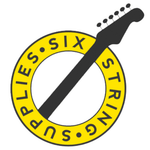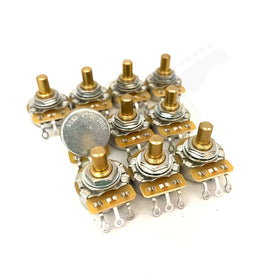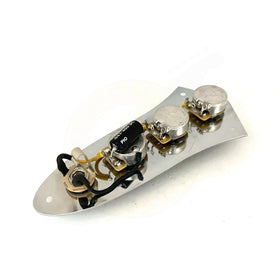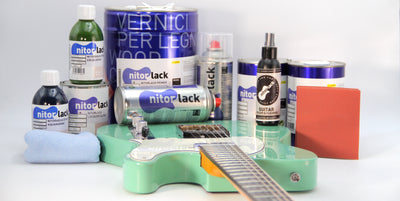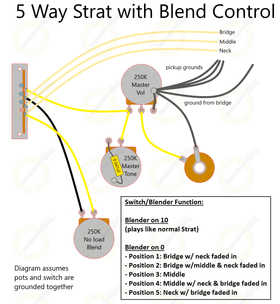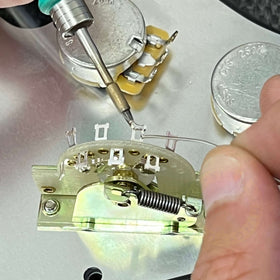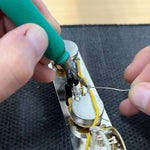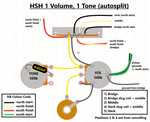
What are the differences between the modern Les Paul wiring setup and the popular 50s version? Which is better? It all comes down to your personal preference as a guitarist.
In the modern version, the pickup is connected to the volume input lug in conjunction with the capacitor. This gives a better volume swell. It maintains the overall volume better as it is rolled back but at the cost of losing some of the high end frequencies. This is why many modern guitars can sound a bit muddy at lower volumes. This can be rectified by installing a treble bleed circuit onto each volume pot.
In the 50s setup, the pickup is soldered alone to the volume input lug. This results in a higher output and the capacitor acts as a treble bleed. As volume is decreased, more high end frequencies are maintained allowing you to play and a lower volume with more clarity. The relationship between the volume and tone controls changes too. They become more interactive with each other. As you decrease the tone control, the volume will decrease ever so slightly. Minute changes in tone will influence volume and output and vice versa.
Pros of 50s Wiring
- Pickups don’t lose their high frequencies when turning down the volume. Pickup tone remains consistent.
- High frequencies tend to stay clear with the Volume Pot in it’s lower ranges.
- Pickup tone is punchier, more "in your face".
Cons
- Turning down the tone control can affect the pickup’s volume
Pros of Modern Wiring
- Adjusting the tone control will not affect your pickup’s volume.
- A smoother tone in general, which some players prefer.
Cons
- Turning down the volume control will send some high frequencies to ground, resulting in a darker tone overall. Many players try to fix this by using treble bleed capacitors on the volume control.
Which is better? Neither. 50s wiring is probably more popular, but in reality it all comes down to your playing style.
We have a detailed step by step photo guide to wiring a 50s style Les Paul, including wiring the toggle switch and jack using braided guitar wire.
Guitar Wiring FAQ
